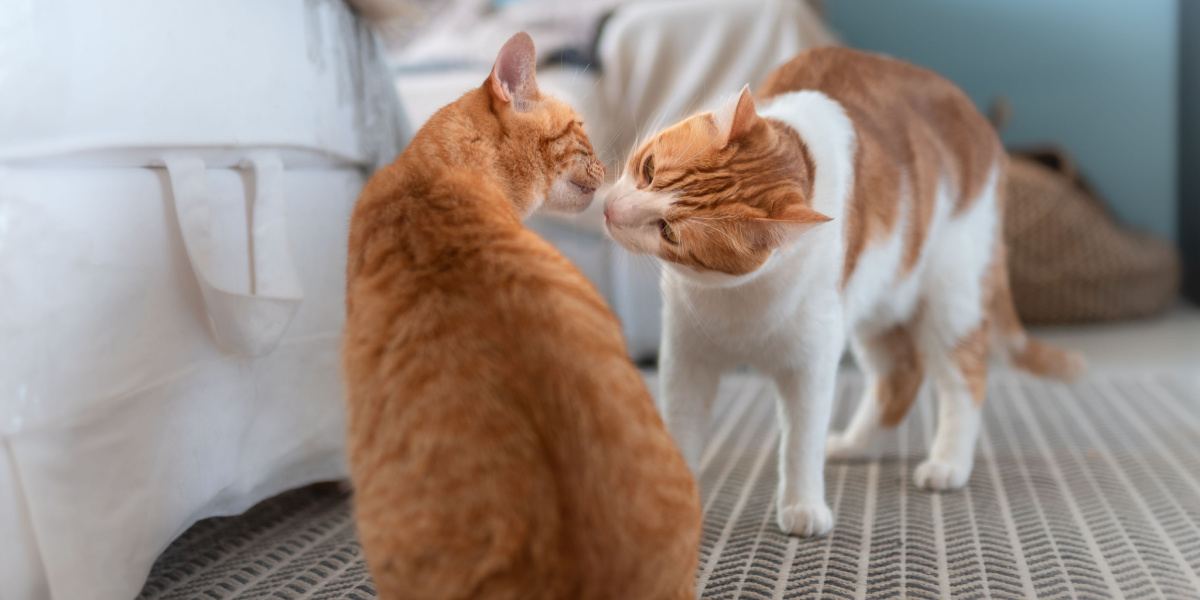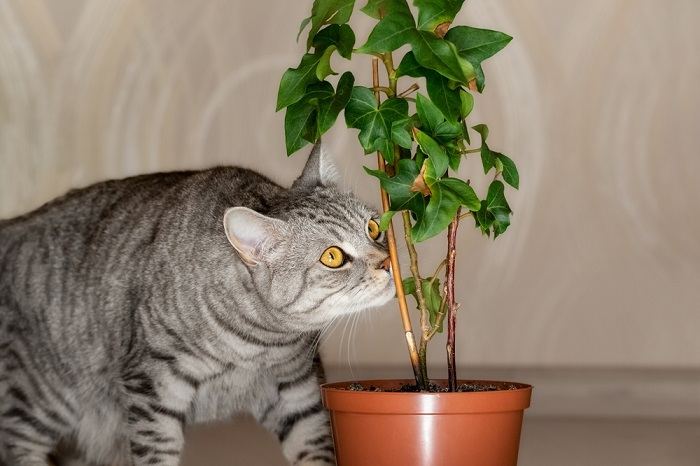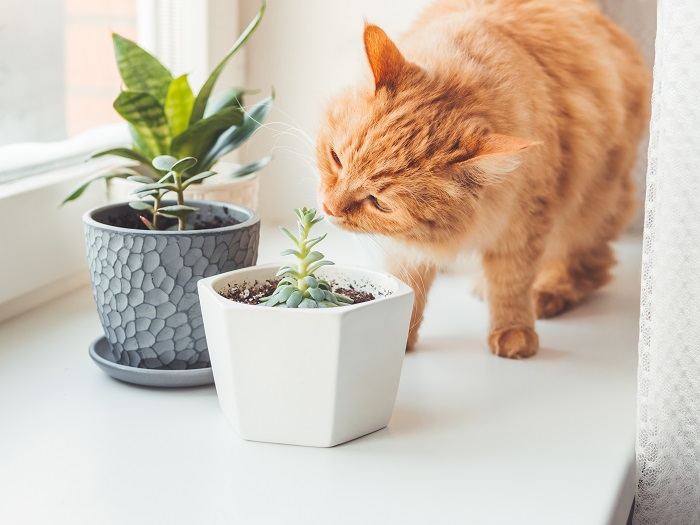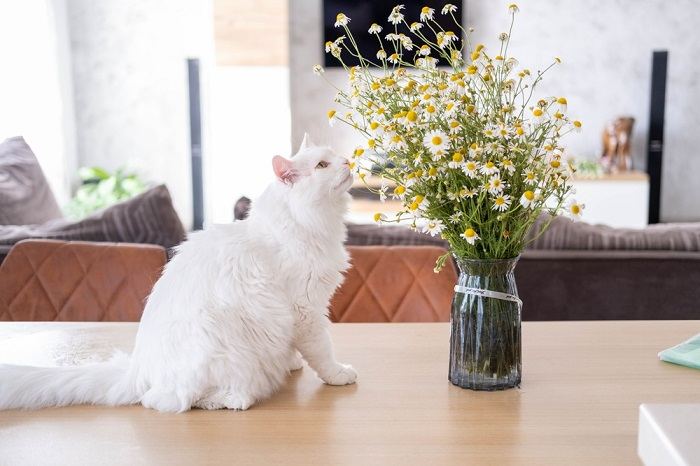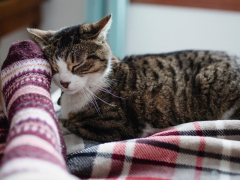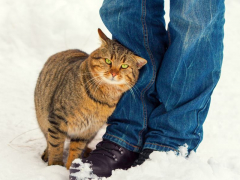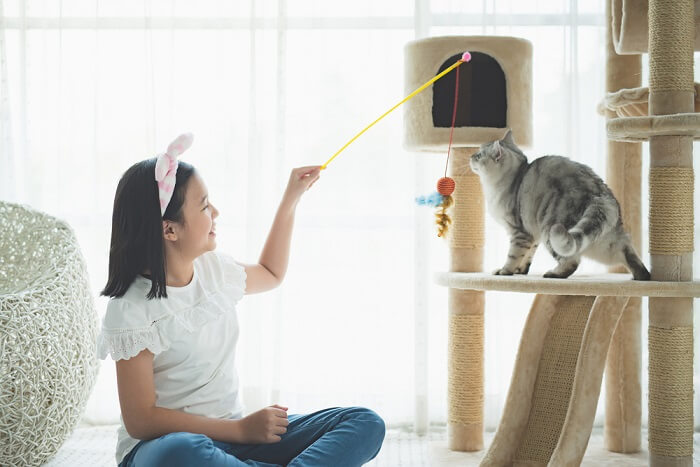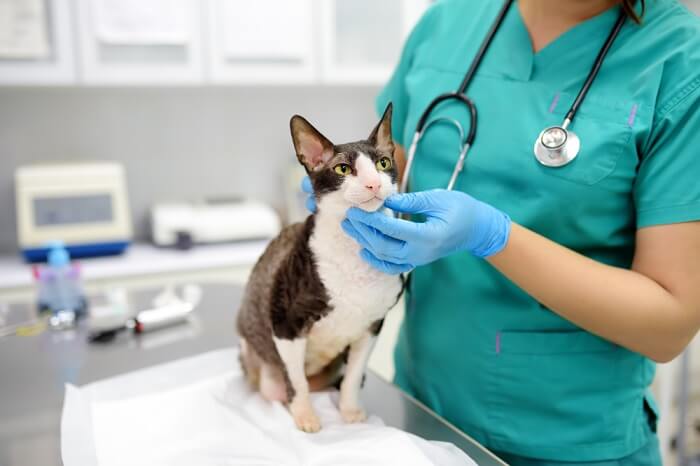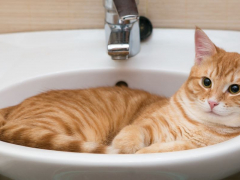A cat’s sense of smell is quite simply amazing. It is far superior to a human’s. In fact, cats have around 200 million scent receptors in their nasal cavity, whereas humans have just 6 million scent receptors.
Cats rely on their sense of smell more than any of their other senses. Cats use scent in almost everything they do, from communication to hunting to exploring. Sniffing things in their environment allows cats to gather important information such as who has been there, what an object is, whether food is safe to eat, or where an object has been.Key Takeaways
That means a cat’s nose is almost 40 times more sensitive than ours. It’s no wonder that cats rely heavily on their sense of smell for almost all aspects of their survival, including communication, hunting, and locating a mate. It’s normal for cats to sniff a lot, but what does it mean if your cat is sniffing more than usual? Let’s find out.
A Bit About Cat’s Noses
There’s a lot more to that cute little button nose than you might realize. We’ve already learned that cats have far more scent receptors in their noses than we do, and as a result, the surface area of a cat’s nasal cavity is much larger than ours, even though their noses are much smaller.
The inside lining of a cat’s nose (called the olfactory epithelium) is estimated to be 20 centimeters squared. A human’s olfactory epithelium is just 4 centimeters squared by comparison.
When a cat detects an odor, the scent receptors in the nasal cavity send information via the olfactory bulb in the nose. This then signals a part of the brain called the amygdala which processes the ability to consciously detect and recognize a scent.
Not only are cats’ noses extremely sensitive at picking up smells, but they also have a far superior ability to distinguish between different smells than dogs or humans can. The receptor in the nose that is responsible for differentiating between scents is called the V1R receptor.
Cats have 30 V1R receptors whereas dogs have nine and humans only have two. This allows cats to identify and differentiate between a much wider variety of smells. Cats can even smell pheromones, whereas humans cannot.
The Vomeronasal Organ
Cats have a cool dual scent mechanism, whereby they not only detect smells using their noses but also their mouths. There is a tiny organ on the roof of a cat’s mouth just behind the front teeth called the vomeronasal organ (sometimes called the Jacobson’s organ). This amazing organ allows a cat to detect pheromones (chemical messenges) from other cats, as well as other animals, including you.
This is why you might sometimes observe your cat pausing with their mouth slightly open. Cats do this when using their vomeronasal organ to detect pheromones in the air. A cat will sometimes also curl their upper lips in an attempt to pass as many scent particles as possible over the vomeronasal organ. This curling of the lips is called the flehmen response.
What Does It Mean if My Cat Is Sniffing Everything?
Everything a cat’s sniffs give them vital information about their environment.
A cat relies on their sense of smell more than any of their other senses. Everything they sniff provides them with all sorts of vital information about their environment and the other animals and people within it.
A cat that is placed within a completely new environment such as a new home, the vet, or a cattery will likely take a good sniff at everything in it to obtain as much information as they can. Let’s take a closer look at some of the reasons why cats sniff things.
1. Exploring Their Environment
Cats mostly navigate their world using their noses. Sniffing things in their environment allows them to gather important information such as who has been there (such as other cats, humans, or other animals), what an object is, whether food is safe to eat, or where an object has been.
You will often notice that your cat will immediately sniff anything new in their environment, which could be anything from a new toy, to a new piece of furniture, or even a household guest.
2. Hunting
That incredible sense of smell comes in very handy when a cat is hunting prey. Their finely tuned noses can pick up the scent of a small mammal or other prey animals with just a quick sniff and can help them locate their target.
3. Finding a Mate
Cats are able to detect the pheromones of potential mates and a male cat can smell a female cat in heat from up to two miles away! If there is a potential mate in the area, your cat may sniff everything to try and gather more information about that cat, such as its location, what sex it is, whether it wants to mate, and whether it’s in good health. That’s a lot of information from just a few sniffs of the environment.
4. Checking a Territory
Sniffing things is often tied to a cat surveying their territory.
Cats will usually scent mark their territory. This signals to other cats in the area and provides information such as whose territory it is, how many cats have been there, and whether or not it’s a territory that your cat wants to try and claim. Your cat will sniff everything in an environment to decide where to mark their own territory and whether or not it’s safe to do so.
If your cat already has an established territory but has suddenly started sniffing everything within it, it might mean that there is a new cat in the neighborhood and your cat is sniffing to detect whether or not they are a potential threat.
How Do Cats Scent Mark?
Cats have scent glands (also called sebaceous glands) all over their body including:
- On their cheeks
- Under their chin
- Along their sides
- At the tail base
- Along the tail
We’ve all had our cats bump their forehead against us (sometimes referred to as bunting or head butting), wind their bodies around our ankles, or rub their cheeks along the edges of furniture. Well, every time cats do this, they are scent marking.
You cat is rubbing pheromones onto you, as well as their territory, that not only indicate possession but also that they feels safe in their environment and around you. Pheromones are chemical messengers that can communicate different things depending on the situation and your cat’s emotional state.
Cats can scent mark using pheromones to reassure themselves, alert other cats that they are ready to mate, bond with other animals in the household, or mark their territory and warn off other cats. Cats also have scent glands in their paws and will sometimes scratch vertical or horizontal surfaces to mark their territory.
If a cat is feeling particularly threatened, they might also spray urine around their territory. If your cat is spraying urine around your household, this is usually a sign of stress so contact your veterinarian for further advice. They can refer you to a cat behaviorist if necessary.
Artificial Pheromones
You can buy artificial feline pheromones called Feliway in the form of plug-in diffusers for your home, or sprays. Although these are odorless to us humans, your cat can smell them and they can help reassure your cat and relax them, making them feel safe within their environment. Pheromones can be used to help in all sorts of situations including:
- Moving house
- A trip to the vet
- A new baby
- A new pet
Pheromones can also be used to help alleviate stress in particularly anxious cats, or cats demonstrating problem behaviors such as excessive scratching, over-grooming, or urine spraying.
In Summary
If your cat is sniffing everything all of a sudden, they are simply trying to gather as much information about their environment as they can.
A cat’s sense of smell is highly sensitive and is the most important of all of their five senses. Cats use scent in almost everything they do, from communication to hunting to exploring. The information they gather using their small but extraordinary noses helps them to make decisions about their everyday life and enables them to survive.
If your cat is sniffing everything all of a sudden, they are trying to gain as much information about their environment as they possibly can, and is picking up on scents that you don’t have a chance of smelling.
Also Read: How Intelligent Are Cats? Science Has an Answer
Frequently Asked Questions
Why do cats sniff the air?
Scents and pheromones can be detected in the air, sometimes from several miles away if the wind is in the right direction. Cats have a second scent organ called the vomeronasal organ on the roof of their mouths, so if your cat is sniffing the air with their mouth open, they are detecting subtle pheromones that the nose cannot detect.
Why does my cat sniff me?
Your cat is able to recognize your scent, so it could be that they are simply checking that it’s you! Cats will also scent mark their owners by rubbing their faces and bodies against them so they will sniff you to check this scent that may have been left previously.
Why is my cat sniffing me more than usual?
Cats gain a lot of information through sniffing so if your cat is sniffing you more than usual, it could be that you have been somewhere different that smells interesting, you have the scent of another animal on you, or that you’ve simply spilled some tasty food down you!
Why does my cat keep sniffing loudly?
Cats can sometimes sniff loudly to express their frustration. This is called huffing. Cats might also sniff loudly when they are using their vomeronasal organ to detect an interesting scent. If your cat is sniffing loudly all of the time, it could be that they have an infection, so take them to the veterinarian if you are concerned that they might be unwell.
Why does my cat randomly sniff the carpet?
Although the carpet might seem boring to you or me, it can provide a lot of information to your cat! It might be that your cat is sniffing and trying to work out where you were before you walked on the carpet, or they are picking up the scent of another animal that has been there. Cat’s noses are so sensitive, they might even be sniffing some food that was long ago spilled and cleaned up.
